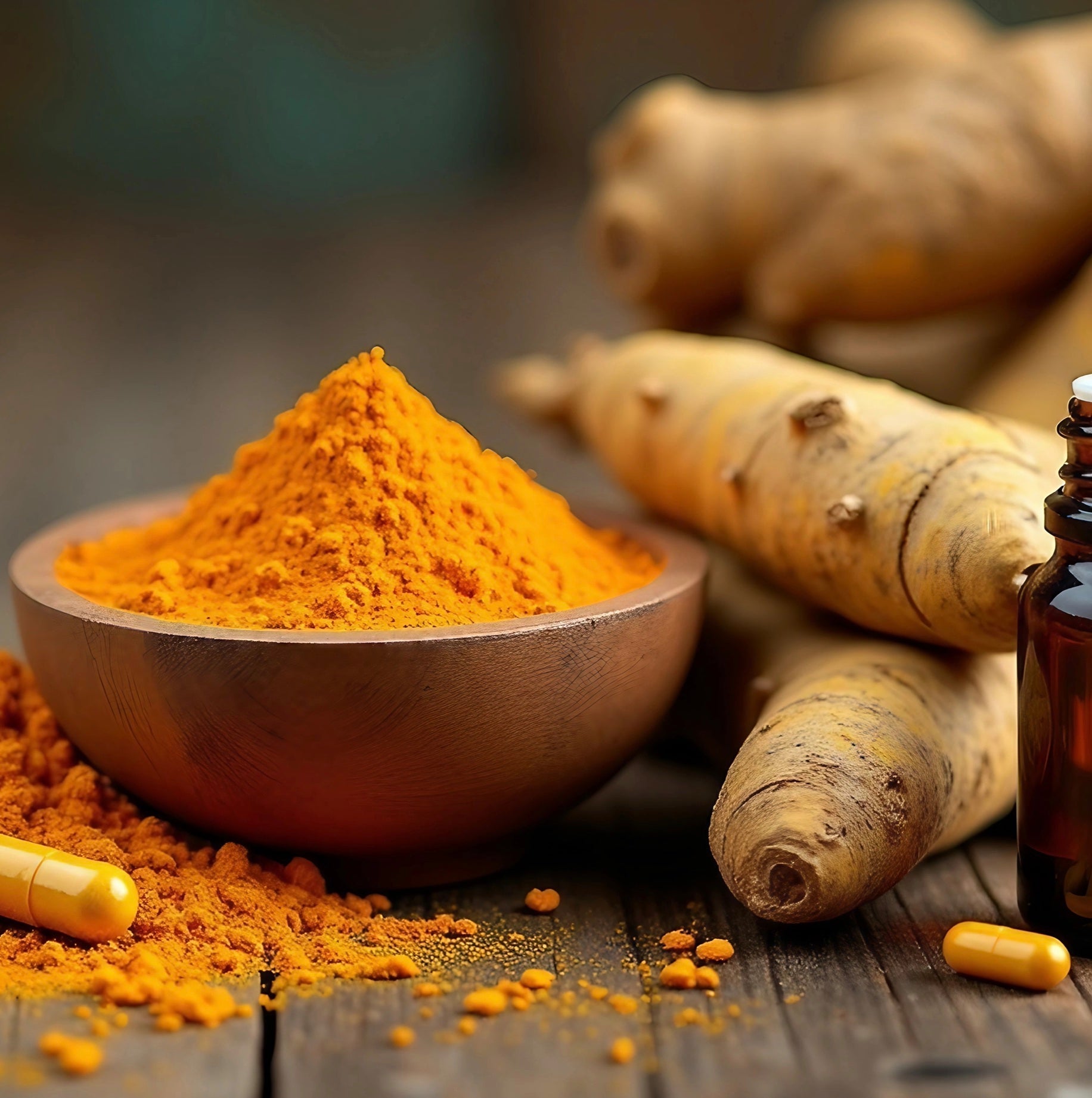
CURCUMA – The Golden Root of Health
Many people know turmeric (turmeric root) primarily as a food product widely used in the cuisines of India, Southeast Asia, and the Middle East. For example, it gives an appealing color and aroma to various types of curry and pilaf. In recent years, turmeric has gained new popularity thanks to its health-promoting potential.
 The golden root of turmeric has long been used in traditional medicine across many Asian countries. In Ayurveda, it is recommended to boost the body's energy levels, improve digestion and appetite, relieve menstrual pain, reduce bloating, and combat chronic inflammation such as in arthritis. In Traditional Chinese Medicine, turmeric is especially valued for its benefits to the gastrointestinal tract — it is considered a bitter digestive and carminative (a remedy that reduces gas). Often, turmeric mixed with milk or water is taken for intestinal disorders, as well as colds and sore throats.
The golden root of turmeric has long been used in traditional medicine across many Asian countries. In Ayurveda, it is recommended to boost the body's energy levels, improve digestion and appetite, relieve menstrual pain, reduce bloating, and combat chronic inflammation such as in arthritis. In Traditional Chinese Medicine, turmeric is especially valued for its benefits to the gastrointestinal tract — it is considered a bitter digestive and carminative (a remedy that reduces gas). Often, turmeric mixed with milk or water is taken for intestinal disorders, as well as colds and sore throats.
Western medicine has also shown interest in turmeric’s healing potential: over the past 25 years, more than 3,000 scientific studies on this plant have been published in medical journals. More than 100 biologically active compounds have been isolated from turmeric root, the most well-known of which is curcumin. This compound has anti-inflammatory, antibacterial, and antiparasitic effects, along with strong antioxidant properties.
The beneficial effects of turmeric extract on the digestive system are well studied. For example, it suppresses the production of pro-inflammatory cytokines, as well as the growth of bacteria that cause acute gastroenteritis and various strains of Helicobacter pylori.
Curcumin from turmeric powder is poorly absorbed in the stomach and intestines. Its powerful antibacterial and antifungal effects occur directly in the digestive tract, after which turmeric is eliminated from the body. Therefore, it is safe even when taken in relatively large amounts. At the same time, turmeric’s positive impact can also be seen at the systemic level — especially in cases of "leaky gut" syndrome and related issues such as allergies and chronic inflammation. It has been proven that curcumin can improve the barrier function of the intestinal lining, restore its integrity, reduce permeability, and stimulate the production of antimicrobial peptides.
The curcumin content in dried turmeric root is quite low — only about 6%. Therefore, ground turmeric should be seen primarily as a healthy culinary spice with a mild preventive effect. However, if digestive issues or chronic infections are already present, for a noticeable therapeutic effect, it's better to use a turmeric extract that contains 95% curcumin.
To actively reduce inflammation, restore the gut barrier, and improve digestion, a combination of turmeric and black pepper extracts is often recommended — enriched, for example, with a prebiotic (such as acacia fiber) and/or matcha green tea extract, which is a rich source of anti-inflammatory antioxidants